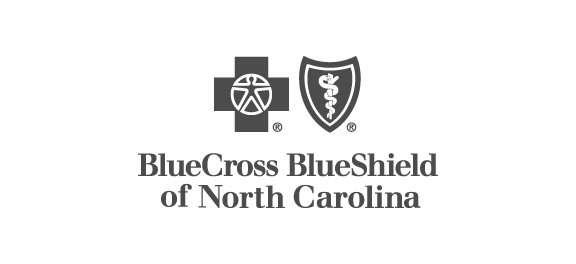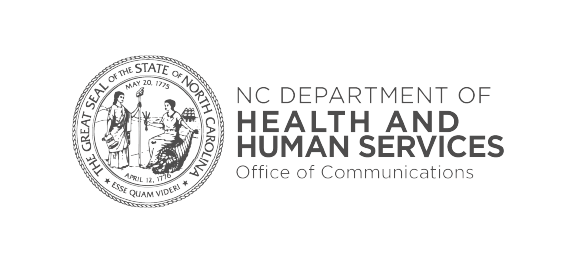What is PTSD?
Post Traumatic Stress Disorder, or PTSD, is a mental health condition characterized by persistent mental and emotional stress whose underlying cause is a specific traumatic event or series of events. PTSD sufferers often present with co-morbidities or other mood disorders, including anxiety or depression, whose symptoms include isolation, panic attacks, sleeplessness or oversleeping, and the inability to handle life’s daily tasks.
These underlying traumas may be immediately and frequently recalled in flashbacks or nightmares. Where trauma is a series of events, such as childhood abuse, violence, or neglect, symptoms may emerge later. Another form of PTSD may stem from what are called microtraumas, which can be intermittent or regular emotional abuse.
According to the National Health Service, it is estimated that one in three people suffer from PTSD. Thankfully, there are medical and behavioral interventions that can change the lives of patients and give them freedom from trauma and fear.
State of PTSD in 2024
“Therapeutic or psychiatric interventions for ADHD help individuals manage the symptoms. The impact of the inability to concentrate extends beyond tasks like studying, it presents significant challenges with everyday tasks and managing impulses may be pronounced. Apogee Behavioral Medicine offers various diagnostic modalities such as a Creyos neuropsychological assessment to assist in the diagnosis of ADHD and ultimately design an individualized treatment plan. Treatments may include cognitive-behavioral therapy, psychoeducation, or medication management. Therapists and psychiatrists record progress and educate patients while adjusting treatment plans. It is also important that your treatment providers provide support, non-judgment, and guidance.” -Mariah Echevarria, Psychiatric Physician Assistant at Apogee Behavioral Medicine
Treat PTSD - Why See a Psychiatrist
Treatment plans vary for PTSD, as widely as the type of trauma an individual has suffered. For this reason, Apogee Behavioral Medicine treatment plans draw from cognitive behavioral therapy, which addresses underlying persistent thoughts through talk therapy and medical interventions. Psychiatrists administer medical interventions or medications that help address the symptoms of comorbidities like anxiety and depression by altering brain chemistry.
PTSD treatment requires considerable attention to the individual case. In severe cases, a medical intervention may be the first step in a treatment plan to stabilize an individual and begin healing through cognitive behavioral therapy. It is important to realize that trauma is not hopeless; quite the contrary, we have seen many patients experience remarkable outcomes.
Signs and Symptoms of PTSD
The signs and symptoms of PTSD are not uniform, nor do they fit a prescribed timeline. Some experience symptoms of PTSD like nightmares and flashbacks immediately that fade, while others begin to experience symptoms weeks or even years later.
PTSD symptoms are very pronounced and are more widely known and attributed to PTSD, including nightmares, flashbacks, uncomfortable sensations or repetitive images in the mind, physical sensations such as sweating, pain, or feeling sick and trembling, and hyperarousal, which is being on high alert for danger. Lesser known symptoms include avoidance of people, places, or things and emotional numbing, which is a complete refusal to feel emotions to avoid the difficult sensations that arise on account of the trauma.
Comorbidities are mental health disorders and self-harm or abuse, which may also require treatment alongside PTSD. PTSD sufferers, who numb emotionally or dissociate from their feelings, may turn to drugs or alcohol to tune out difficult feelings. Mood and mental health disorders whose symptoms also accompany those of PTSD that are common are anxiety, depression, and phobias.

Risk Factors for PTSD
How individuals process traumatic events varies. Some individuals are more resilient to stimuli others will ruminate on and develop prolonged stress responses. There are some common risk factors for those who develop PTSD, which are present before the traumatic event or events.
These include:
- Prior exposure to trauma, particularly in childhood
- Witnessing people being hurt or killed or experiencing extreme fear or horror
- Lack of social support during or after events
- Having a family history of mental illness or substance abuse
One of the key ways individuals who recover and heal from trauma differ is their access to a support system and help. Learning how to process these emotions and coping with triggers associated with the event can be significant in a sufferer’s outcome.
Who Is PTSD Treatment For?
Adults, adolescents, and children may suffer from PTSD. Treatment plans vary depending on the severity and the symptoms. Apogee Behavioral Medicine has specialists with expertise in treating each age, carefully, with compassion, and to help them lead fuller lives.
Our providers all practice using standardized, evidence-based treatments to meet all your wellness needs.
Our staff is well-equipped to support you along all aspects of your care.
We put you in the driver’s seat by offering ease of access to your team
Treatment Options for PTSD
It is never too late to start treating PTSD. Since symptoms vary widely, there are several medications to help control tremors and repetitive thoughts of phobias immediately. While physical symptoms can often be addressed through medications, the emotional portion of facing traumatic events can be very painful and stressful.
Where patients have built coping mechanisms for blocking these memories, it can take many sessions to unearth and face the trauma to begin to heal. Apogee Behavioral Medicine has professionals with deep expertise in treating post-traumatic stress disorder and we understand that this can be a difficult journey. Still, we have seen miraculous results from custom treatment plans and patients experiencing real healing.
Same Day Appointments Available
Apogee Behavioral Medicine offers same-day appointments. If you experience repetitive thoughts or flashbacks regarding certain events that are keeping you from leading a full life or experiencing life’s happy moments, please reach out to us today, we are here to meet you where you are.

FAQs About PTSD
At a root level, a series of events or one major event that is deeply stressful and painful. These events or events are called trauma. Some examples are a car accident, a neardeath experience, repeated abuses, being exposed to multiple traumas, such as in war, or a physical assault. There are also “micro traumas,” which refer to consistent small hurts that amount to large amounts of pain, and symptoms and treatments are similar.
Psychiatrists help treat PTSD, as do psychologists or therapists. Incorporating medical interventions and medications can help where physical symptoms are manifesting, such as panic attacks and tremors. Psychologists will focus on behavioral therapies that often incorporate talk therapy to discuss the trauma.
Psychiatrists and psychologists at Apogee Behavioral Medicine together determine treatment plans for PTSD patients. We treat children, adolescents, and adults who present with symptoms of PTSD, and it is never too late to start treatment and take the first step toward a life free of PTSD.
Psychiatrists and Psychologists are the most common mental health professionals that treat PTSD. Depending on the symptoms of a patient, a psychiatrist, primary care physician, an addiction specialist, and a psychologist or therapist may be together as a team to help treat a patient suffering from PTSD. Since each case is so unique and the symptoms or coping mechanisms may vary, there can be many mental health professionals who can help.
PTSD can be treated without medical interventions. However, where symptoms are severe and debilitating, such as tremors, lack of sleep from nightmares, and phobias, and an individual is unable to handle life’s tasks, a medical intervention may be the best course. There is some evidence that Eastern medical alternatives such as Chinese herbal medicine and acupuncture can relieve symptoms.
Insurances Accepted
















Call us at (855) 409-9002 to see if you are covered.
Insurance plans may vary by state and are subject to change.
